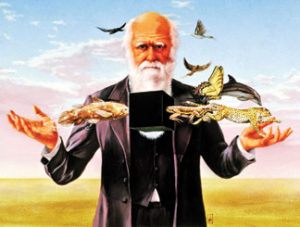 The following is a transcript from part of Dr. John MacArthur’s message “The Nonnegotiable Gospel” at the 2017 Ligonier National Conference.
The following is a transcript from part of Dr. John MacArthur’s message “The Nonnegotiable Gospel” at the 2017 Ligonier National Conference.
“N.T. Wright has written hundreds and hundreds of pages on the gospel, and the more you read of it, the less you understand what he affirms. It is confusing, it is ambiguous, it is contradictory, it is obfuscation of the highest level: academic sleight-of-hand. But while I cannot figure out what it is that he does believe, even after hundreds of pages, it is crystal clear what he does NOT believe.
“More recently, he has written a book called The Day the Revolution Began, and in that book he says this: ‘We have paganized our understanding of salvation, substituting the idea of God killing Jesus to satisfy His wrath for the genuinely biblical notion that we are about to explore.’ So [according to Wright] all of us who believe in the substitutionary death of Christ on the Cross have been worshiping a paganized perversion of biblical truth, now to be clarified by him.
“Another quote: ‘That Christ died in the place of sinners is closer to the pagan idea of an angry deity being pacified by a human death than it is to anything in either Israel’s Scriptures or the New Testament.’ He’s clear on what he rejects; he rejects the substitutionary atonement of Christ, he rejects imputation, he rejects the gospel. He says to worship God as one who justifies by sacrifice and imputation is nonsense.
“Here’s a quote: ‘If we use the language of the law-court, it makes no sense whatsoever to say that the judge imputes, imparts, bequeaths, conveys, or otherwise transfers his righteousness to either the plaintiff or the defendant. Righteousness is not a substance, an object, or a gas, which can be passed across the courtroom. This gives the impression of a legal transaction, a kind of cold piece of business, almost a trick of thought performed by a God who is logical and correct, but hardly one we want to worship.’
“Christianity Today identified him as one of the five most significant Christian theologians of our day.
“He further says: ‘No one will be justified until he reaches Heaven.’
“One more painfully clear denial is in these words: ‘I must stress again that the doctrine of justification by faith is NOT what Paul means by the gospel. The gospel is NOT an account of how people get saved.’ I have NO idea what he believes, but I know what he does NOT believe. He doesn’t believe the gospel, and he doesn’t believe the gospel is an account of how people get saved, in spite of the fact that 1 Corinthians 15:1-2 says, ‘Now I make known to you, brethren, the gospel, which I preached to you, which you also reached, and in which you stand, and by which also you are saved.’
“N.T. Wright has just piled up high-sounding words, raised up against the knowledge of God, to be smashed by the truth: fortifications to be crushed under the force of the truth. What strikes me, though, is this: here is a man and those who follow him who seem to have no angst about their heresy, who seem more than content to offer themselves as the ones who have arrived at the solution 2,000 years after the New Testament, and who are happy to propagate it as far and wide as they can, lay down their head on the pillow at night, and go to sleep. Here are people who clearly [based on their teaching that ‘no one will be justified until he reaches Heaven’] are content to be in an UNJUSTIFIED state but have (apparently) little or no angst about the reality of their condition. They are still in the state of Luther before he understood the gospel, utterly void of the way to be right with God, but instead of feeling the pain that Luther felt, the anxiety that overwhelmed him, the agonies of Job, they’re comfortable: they’re content. They don’t really care whether works is the ultimate CAUSE of justification or the EVIDENCE of justification. It really doesn’t matter [to them]; it’s a very small, inconsequential issue to them. To be a heretic is one thing, to be a confident, happy heretic is quite another.
“The Apostle Paul, in dealing with the content of the gospel, was always profoundly exercised, as you know. He could barely endure any situation in which he felt the gospel was in any sense compromised at all… If there was any deviation at all from the foundations of the gospel, it was a terrifying reality to the Apostle Paul. He said to the Corinthians, ‘If you have at all deserted the simplicity that is in Christ for another Christ, another gospel, this is more than I can bear.’ People who know the true gospel and love the true gospel are people who have a true peace, a settled peace, and people who have a passion for its proper declaration on behalf of others.
“N.T. Wright’s influence is spreading rapidly. It continues to be very attractive. Novel theology’s always attractive. Many young theologians and pastors have been ‘drinking the Kool-Aid,’ and so the battle for the gospel still rages.”
***
N.T. Wright elsewhere makes this claim:
“… it makes no sense that the judge imputes, imparts, bequeaths, conveys or otherwise transfers his righteousness to either the plaintiff or the defendant. Righteousness is not an object, a substance or gas that can be passed across the courtroom,” [N.T. Wright, The Shape of Justification, 98.]
Dr. John Piper (in response – [Counted Righteous in Christ, pages 63-64]):
Suppose I say to Barnabas, my teenage son, “Clean up your room before you go to school. You must have a clean room or you won’t be able to watch the game tonight.” Suppose he plans poorly and leaves for school without cleaning the room. And suppose I discover the messy room and clean it. His afternoon fills up, and he gets home just before it’s time to leave for the game and realizes what he has done and feels terrible. He apologizes and humbly accepts the consequences. No game.
To which I say, “Barnabas, I am going to credit the clean room to your account because of your apology and submission. Before you left for school this morning I said, ‘You must have a clean room or you won’t be able to watch the game tonight.’ Well, your room is clean. So you can go to the game.”
That’s one way to say it, which corresponds to the language of Romans 4:6. Or I could say, “I credit your apology for a clean room,” which would correspond to the language of Romans 4:3. What I mean when I say, “I credit your apology for a clean room” is not that the apology is the clean room, nor that the clean room consists of the apology, nor that he really cleaned his room. I cleaned it. It was pure grace. All I mean is that, in my way of reckoning– in my grace– his apology connects him with the promise given for the clean room. The clean room is his clean room.
You can say it either way. Paul said it both ways: “Faith is imputed for righteousness” (4:3,9), and “God imputes righteousness to us [by faith]” (4:6,11). The reality intended in both cases is: I cleaned the room; he now has a cleaned room; he did not clean the room; he apologized for the failure; in pure grace I counted his apology as connecting him with the fulfilled command that I did for him; he received the imputed obedience as a gift.

 Charles Darwin is a great British hero. That’s hardly surprising, since he was one of the most influential thinkers of the past 200 years. I happened to live opposite Darwin’s former lodgings when I was a student at Cambridge University, so I looked out each morning on a blue plaque hailing him as one of the greatest Britons who ever lived. I’m not saying he didn’t deserve that commemorative plaque, but I should point out that he wasn’t a British hero but a British villain. You don’t need to be a Bible-thumping evangelical to question whether Darwin’s thinking deserves to be given a bit more thought.
Charles Darwin is a great British hero. That’s hardly surprising, since he was one of the most influential thinkers of the past 200 years. I happened to live opposite Darwin’s former lodgings when I was a student at Cambridge University, so I looked out each morning on a blue plaque hailing him as one of the greatest Britons who ever lived. I’m not saying he didn’t deserve that commemorative plaque, but I should point out that he wasn’t a British hero but a British villain. You don’t need to be a Bible-thumping evangelical to question whether Darwin’s thinking deserves to be given a bit more thought. Article by TurretinFan: Three Days and Three Nights – Hebrew Idiom for Three Consecutive Calendar Days (original source
Article by TurretinFan: Three Days and Three Nights – Hebrew Idiom for Three Consecutive Calendar Days (original source